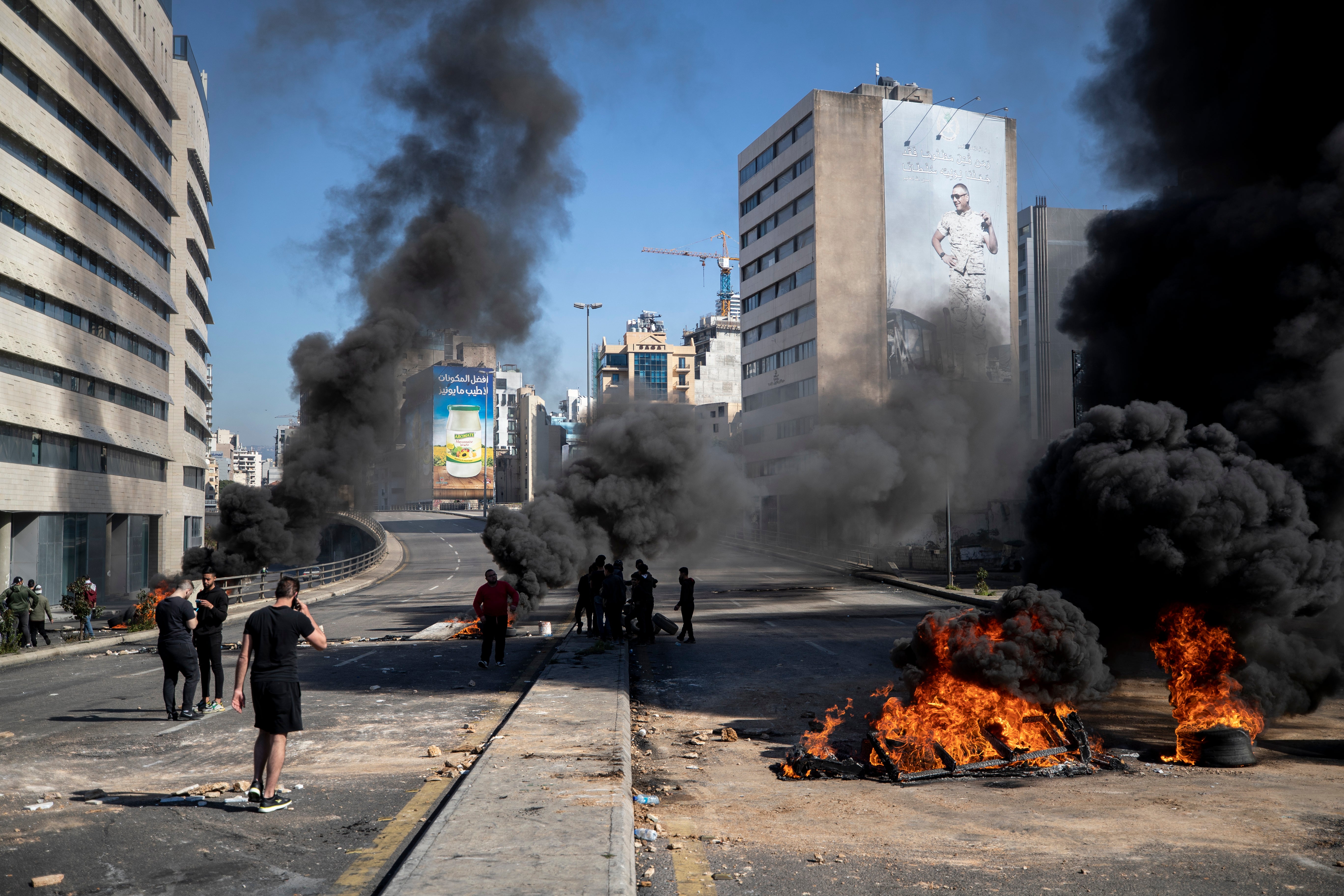Lebanon's caretaker PM warns of chaos as currency plunges
Lebanon’s caretaker prime minister is warning of a slide into chaos and appealing to politicians to put aside differences in order form a new government that can attract desperately needed foreign assistance

Your support helps us to tell the story
From reproductive rights to climate change to Big Tech, The Independent is on the ground when the story is developing. Whether it's investigating the financials of Elon Musk's pro-Trump PAC or producing our latest documentary, 'The A Word', which shines a light on the American women fighting for reproductive rights, we know how important it is to parse out the facts from the messaging.
At such a critical moment in US history, we need reporters on the ground. Your donation allows us to keep sending journalists to speak to both sides of the story.
The Independent is trusted by Americans across the entire political spectrum. And unlike many other quality news outlets, we choose not to lock Americans out of our reporting and analysis with paywalls. We believe quality journalism should be available to everyone, paid for by those who can afford it.
Your support makes all the difference.Lebanon s caretaker prime minister warned Saturday that the country was quickly headed toward chaos and appealed to politicians to put aside differences in order form a new government that can attract desperately needed foreign assistance.
Hassan Diab threatened to suspend his duties if that would increase pressure for a new Cabinet to be formed.
He spoke in a terse address to the nation as the currency continued its rapid collapse against the dollar, trading at one point at 10,500 Lebanese pounds on the black market for the first time in its history. Angry protesters have blocked streets and highways across the country with burning tires for days, as the pound slid to record new lows.
The crash in the local currency has resulted in a sharp increase in prices as well as delays in the arrival of fuel shipments, leading to more extended power cuts around the country, in some areas reaching more than 12 hours a day. The crisis has driven nearly half the population of the small country of 6 million into poverty, wiped out savings and slashed consumer purchasing power.
Diab, who resigned in the wake of the massive August 4 explosion at Beirut port, suggested he might stop working in his role.
“If it helps to form a government, I am prepared to resort to that option even though it goes against my principles,” he said.
In October, former Prime Minister Saad Hariri was named to form a new Cabinet but five months later, disagreements between him and President Michel Aoun on the shape of the Cabinet has stood in the way of a new government’s formation.
Lebanon has also been in desperate need of foreign currency, but international donors have said they will only help the country financially if major reforms are implemented to fight widespread corruption, which has brought the nation to the brink of bankruptcy.
“What are you waiting for, more collapse? More suffering? Chaos?” he said, chiding senior politicians without naming them for grandstanding on the shape and size of the government while the country slides further into the abyss.
“What will having one minister more or less (in the cabinet) do if the entire country collapses,” he asked.
“Lebanon is in grave danger and the Lebanese are paying the price.”